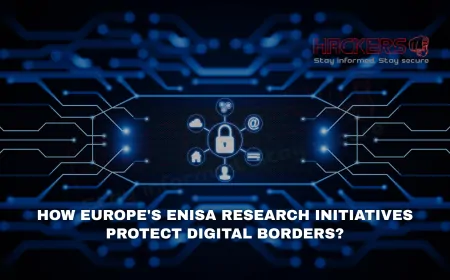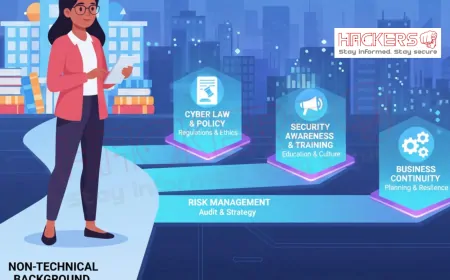How Do Nation-State Cyber Attacks Impact Global Security?
In today’s digital age, the battlefield isn’t just on land, sea, or air—it’s in cyberspace. Nation-state cyber attacks, orchestrated by governments or state-sponsored groups, are increasingly shaping global security. From crippling critical infrastructure to stealing sensitive data, these attacks can destabilize economies, disrupt societies, and even escalate international tensions. As someone who’s followed global cybersecurity trends, I’ve seen how these sophisticated threats affect not just governments but everyday people. This blog dives into what nation-state cyber attacks are, how they work, their impact on global security, and what can be done to counter them. Whether you’re a curious beginner or a policy enthusiast, this guide breaks it down in a way that’s easy to grasp.

Table of Contents
- What Are Nation-State Cyber Attacks?
- Common Techniques Used in Nation-State Cyber Attacks
- Impact on Global Security
- Real-World Examples of Nation-State Cyber Attacks
- Defending Against Nation-State Cyber Attacks
- Conclusion
- Frequently Asked Questions
What Are Nation-State Cyber Attacks?
Nation-state cyber attacks are cyberattacks conducted or sponsored by governments to achieve political, economic, or military objectives. Unlike typical cybercriminals who seek financial gain, nation-state actors target other countries, organizations, or critical infrastructure to gain strategic advantages. These attacks are often highly sophisticated, well-funded, and executed by skilled teams, sometimes called Advanced Persistent Threats (APTs).
Think of it like digital espionage or warfare. A country might hack into another nation’s power grid to cause blackouts, steal military secrets to gain an edge, or disrupt elections to sow chaos. These attacks can affect global security by threatening economies, public safety, and international relations. Understanding their methods is key to grasping their impact.
Common Techniques Used in Nation-State Cyber Attacks
Nation-state actors use a variety of techniques to achieve their goals. Below is a table summarizing some common methods, followed by detailed explanations.
| Technique | Description | Objective |
|---|---|---|
| Phishing | Sends fake emails or messages to trick users into revealing credentials or installing malware. | Gain access to systems or networks. |
| Malware | Deploys malicious software like ransomware or spyware to disrupt or steal data. | Disrupt operations or steal secrets. |
| Zero-Day Exploits | Exploits unknown software vulnerabilities before patches are available. | Bypass security undetected. |
| DDoS Attacks | Overwhelms systems with traffic to cause downtime. | Disrupt critical services. |
| Supply Chain Attacks | Compromises third-party vendors to infiltrate target networks. | Access sensitive systems indirectly. |
Phishing: Attackers send convincing emails or messages that appear to come from trusted sources, tricking users into sharing passwords or clicking malicious links. For example, a government employee might receive a fake email from their “IT department” asking them to reset their password.
Malware: Malicious software like ransomware can lock critical systems, while spyware quietly steals data. Nation-states often use custom malware tailored to specific targets, making it hard to detect.
Zero-Day Exploits: These target unknown flaws in software, giving attackers a way in before developers can release fixes. Nation-states often have the resources to discover and exploit these vulnerabilities.
DDoS Attacks: Distributed Denial-of-Service attacks flood servers with traffic, causing websites or services to crash. This can disrupt government operations or critical infrastructure like hospitals.
Supply Chain Attacks: By compromising a trusted vendor, attackers can infiltrate multiple organizations. For instance, hacking a software provider can give access to all its clients’ systems.
Impact on Global Security
Nation-state cyber attacks have far-reaching consequences for global security. Here’s how they affect the world:
- Economic Disruption: Attacks on financial systems or businesses can cause billions in losses, destabilizing economies. For example, ransomware attacks on supply chains can halt global trade.
- National Security Threats: Stealing military secrets or disrupting defense systems can weaken a country’s ability to respond to threats.
- Critical Infrastructure Risks: Attacks on power grids, water systems, or hospitals can endanger lives and cause widespread panic.
- Geopolitical Tensions: Cyber attacks can escalate conflicts between nations, as seen in disputes attributed to state-sponsored hacking groups.
- Loss of Public Trust: When governments or institutions are hacked, citizens lose confidence in their ability to protect sensitive data.
These impacts ripple across borders, affecting not just the targeted nation but the global community. Real-world examples help illustrate the scale of the problem.
Real-World Examples of Nation-State Cyber Attacks
Nation-state cyber attacks have made headlines for their audacity and impact. Here are a few notable cases:
- Stuxnet (2010): A sophisticated worm, allegedly developed by the U.S. and Israel, targeted Iran’s nuclear program, damaging centrifuges and delaying its progress. It showed how cyber attacks could cause physical destruction.
- SolarWinds Attack (2020): A Russia-linked group compromised a software provider, infiltrating U.S. government agencies and private companies. The supply chain attack exposed sensitive data for months.
- NotPetya (2017): A ransomware attack, attributed to Russia, targeted Ukraine but spread globally, causing billions in damages to companies like Maersk and Merck.
- North Korean Hacks (2014): North Korea was linked to a cyber attack on Sony Pictures, leaking sensitive data and disrupting operations in retaliation for a film release.
These examples show how nation-state attacks can disrupt economies, governments, and public safety. So, how can we defend against them?
Defending Against Nation-State Cyber Attacks
Defending against nation-state cyber attacks is challenging but not impossible. Governments, organizations, and individuals can take steps to reduce risks:
- Strengthen Cybersecurity: Use strong encryption, firewalls, and intrusion detection systems to protect networks.
- Patch Software Regularly: Update systems to fix vulnerabilities that could be exploited by zero-day attacks.
- Employee Training: Educate staff to recognize phishing emails and avoid clicking suspicious links.
- Network Segmentation: Divide networks into smaller segments to limit the spread of an attack.
- International Cooperation: Countries can share threat intelligence and establish norms to deter state-sponsored attacks.
- Incident Response Plans: Develop and test plans to quickly recover from cyber attacks and minimize damage.
- Secure Supply Chains: Vet third-party vendors and monitor their security practices to prevent supply chain attacks.
While no defense is foolproof, these measures can make it much harder for nation-state actors to succeed. Collaboration between governments, businesses, and cybersecurity experts is key.
Conclusion
Nation-state cyber attacks are a growing threat to global security, capable of disrupting economies, endangering lives, and escalating international conflicts. From phishing and malware to sophisticated supply chain attacks, these state-sponsored efforts exploit digital vulnerabilities to achieve strategic goals. Real-world incidents like Stuxnet and SolarWinds show the devastating potential of these attacks. However, by strengthening cybersecurity, training employees, and fostering international cooperation, governments and organizations can fight back. In a world where digital and physical security are intertwined, staying vigilant and prepared is essential. Let’s take these threats seriously and work together to build a safer digital future.
Frequently Asked Questions
What is a nation-state cyber attack?
It’s a cyberattack conducted or sponsored by a government to achieve political, economic, or military goals.
Why do countries launch cyber attacks?
Countries use cyber attacks to steal secrets, disrupt infrastructure, or gain strategic advantages over rivals.
What is an Advanced Persistent Threat (APT)?
An APT is a sophisticated, long-term cyberattack, often by nation-states, targeting specific organizations or governments.
How does phishing work in nation-state attacks?
Attackers send fake emails or messages to trick users into sharing credentials or installing malware.
What is a zero-day exploit?
It’s an attack that targets unknown software flaws before developers can release a fix.
Can cyber attacks cause physical damage?
Yes, attacks like Stuxnet have damaged physical infrastructure, such as nuclear centrifuges.
What is a DDoS attack?
A DDoS attack floods servers with traffic to cause downtime, disrupting services like websites or networks.
How do supply chain attacks work?
Attackers compromise a trusted vendor to infiltrate the networks of their clients or partners.
Can nation-state attacks affect individuals?
Yes, attacks on infrastructure or businesses can disrupt services, expose personal data, or cause economic harm.
How do cyber attacks impact global security?
They can disrupt economies, weaken national defenses, and escalate tensions between countries.
What was the Stuxnet attack?
Stuxnet was a worm that targeted Iran’s nuclear program, causing physical damage to centrifuges in 2010.
What happened in the SolarWinds attack?
In 2020, a Russia-linked group hacked a software provider, compromising U.S. government and corporate networks.
Can small businesses be targeted by nation-state attacks?
Yes, especially if they’re part of a supply chain or hold valuable data.
How can organizations defend against nation-state attacks?
Use encryption, patch software, train employees, and segment networks to reduce risks.
Why is employee training important?
Training helps employees recognize phishing attempts and avoid actions that could compromise security.
What is network segmentation?
It divides a network into smaller parts to limit the spread of an attack if one segment is compromised.
Can international laws stop nation-state cyber attacks?
Laws can deter attacks, but enforcement is difficult due to attribution challenges and geopolitical tensions.
How do countries attribute cyber attacks to other nations?
They analyze attack patterns, malware signatures, and intelligence to identify the source.
Are nation-state cyber attacks increasing?
Yes, as digital infrastructure grows, so does the frequency and sophistication of these attacks.
What can individuals do to stay safe?
Use strong passwords, update software, and be cautious with emails or links to avoid phishing scams.
What's Your Reaction?










































































